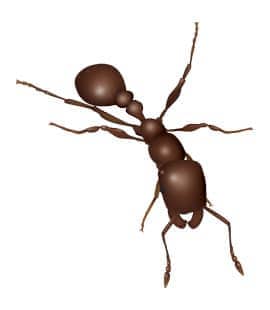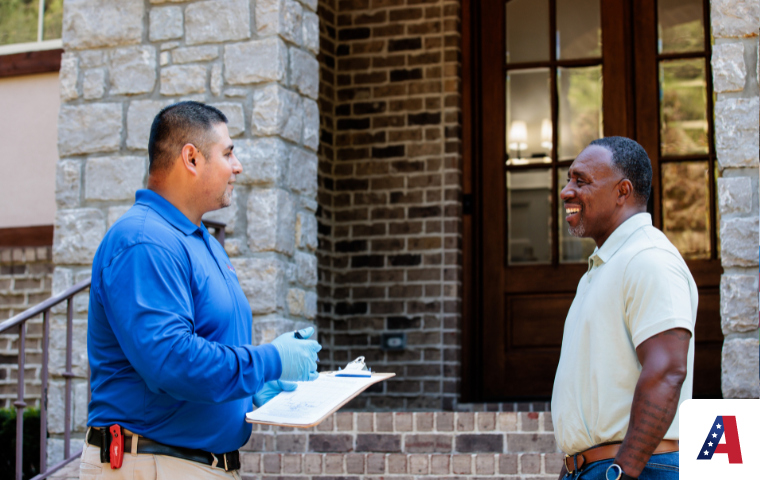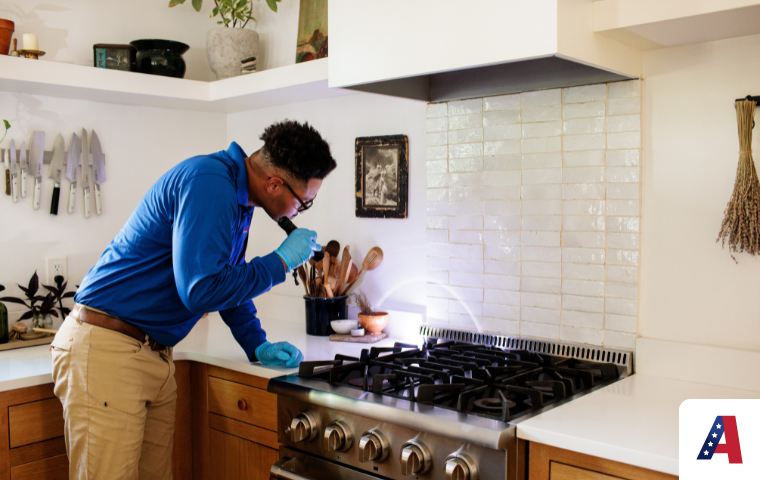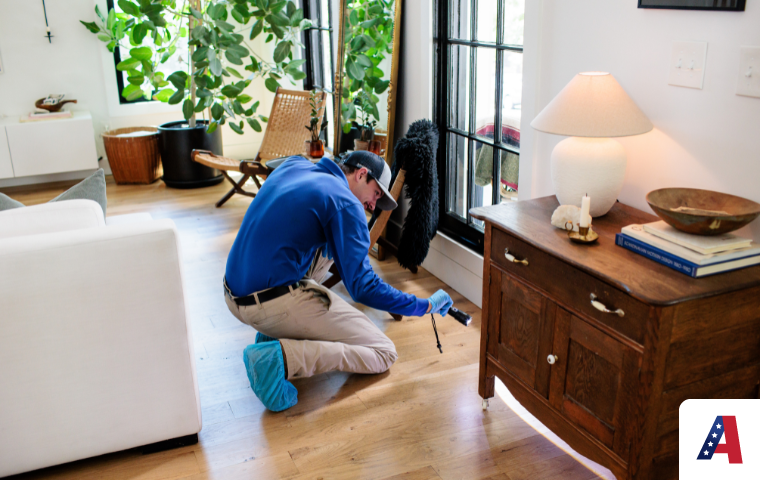What are pavement ants?

Pavement ants are a docile species of ant that, as their name suggests, can be found nesting and living underneath pavement and concrete structures.
Adult workers grow to be about 1/8th of an inch in length; the queens grow a bit bigger in size.
Pavement ants range from dark brown to black, and they have a 12-segmented antenna with a 3-segmented club on the end of it.
They have unique parallel grooved lines that run down their head and thorax, and they are also equipped with small spines that protrude from the hind end of the thorax.
Are pavement ants dangerous?
No, pavement ants are not considered to be a dangerous species of ant; while they do have the ability to sting and bite they are non-aggressive and are non-confrontational. Inside homes, pavement ants can become quite a nuisance and can contaminate food sources. They especially like to feed on meats, grease, nuts, and cheese.
Why do I have a pavement ant problem?
Pavement ants are typically found living outside forming nests along sidewalks, in the cracks of driveways, and underneath foundations and concrete slabs. Pavement ants invade homes while foraging for food and water, and once inside may decide to stay and create a nest underneath flooring or in insulation found behind walls.
How do I get rid of pavement ants?
Pavement ants are a difficult pest to get rid of because all of the foraging ants and nesting areas need to be found and eliminated to truly get rid of an infestation. At All-American Pest Control, we can help to eliminate pavement ants and other common household pests from your home through our home pest control services or our green pest control solutions in Nashville. All-American Pest Control also offers pavement ant control solutions for commercial establishments. For more information on how we can eliminate pavement ants from your home or business, call us today.
We're Ready To Help
Call Our Office or Complete the Form To Get Your Customized Quote
Can I do it myself?
Trying to get rid of pavement ants or any other species of ant is a tricky task; DIY products often only work to eliminate the foraging ants, not the nesting sites. They also can’t help you identify changes that should be made around your home and property to prevent future problems with pavement ants. The best way to get rid of pavement ants in your home and property is to get help from a professional pest control expert serving Nashville and Middle TN. If pavement ants have infested your property contact All-American Pest Control today.
Why choose All-American Pest Control?
With over 50 years of experience, we know the time, effort, and commitment it takes to solve your pavement ant problem. With All-American Pest Control, you’ll receive services, a serious commitment, and thorough treatments from our trained experts.
How can I prevent problems with pavement ants in the future?
Along with implementing a pest control program for your Nashville home, there are several steps that you can take to help reduce the chance of pavement ants invading your home.
Here are our pavement ant prevention tips:
-
Seal any cracks that form in sidewalks, walkways, and/or driveways located on your property.
-
Inspect your home’s foundation and seal any cracks or crevices that are found.
-
Caulk gaps found around windows and doors; make sure that screens are completely intact.
-
Install door sweeps on all exterior doors.
-
Place outdoor trash cans that have locking lids a distance away from your home until trash pick-up day.
-
Trim back trees and bushes from the exterior of your home; keep a barrier between your home’s foundation and any mulch or grass.
-
Keep kitchen and pantry areas free of clutter and crumbs and clean up spills immediately. Place food in refrigerators; don’t store out in the open on counters or tables. Do not leave dirty dishes in your sink for long periods of time.
 1449 Reviews
1449 Reviews




